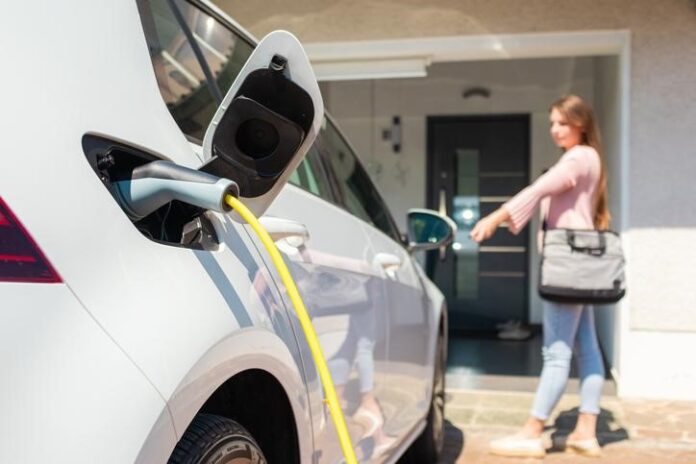Inflation hits many countries and so the government offers an alternative ways to reward and at the same time give their people a great option to save money and care for the environment.
Electric Car Scheme is one of the many schemes available that offers a great way to save on fuel and at the same time do your bit for the environment.
What is electric car salary sacrifice?
Under this scheme, you can lease an electric car from your employer for a certain period of time. The amount you pay each month is deducted from your salary before tax, so you save on income tax and National Insurance.
With salary sacrifice, you give up part of your salary in return for a benefit. The amount you sacrifice is taken off your salary before tax, so you pay less tax and National Insurance.
The government launched the electric car salary sacrifice scheme in 2017 to encourage more people to switch to greener cars. Under the scheme, employees can lease an electric car from their employer and pay for it through their salary.
The amount you pay each month is deducted from your salary before tax, so you save on income tax and National Insurance.
Benefits of electric car salary sacrifice
There are a number of benefits to taking part in the electric car salary sacrifice scheme:
1. You save on income tax and National Insurance
2. You can lease a brand new electric car with the latest technology
3. You get all the benefits of owning an electric car, without the initial cost
4. You can choose from a range of cars to suit your needs
5. You can take advantage of government grants and subsidies
6. You can reduce your carbon footprint
If you’re thinking of making the switch to an electric car, salary sacrifice could be the perfect option for you. Not only will you save money on tax and National Insurance, but you’ll also get all the benefits of owning an electric car without the initial cost.
4 types of electric vehicles?
There are four main types of electric vehicles:
1. Battery electric vehicles (BEVs)
2. Hybrid electric vehicles (HEVs)
3. Plug-in hybrid electric vehicles (PHEVs)
4. Fuel cell electric vehicles (FCEVs)
Battery electric vehicles are powered entirely by electricity, while hybrid electric vehicles use a combination of electricity and gasoline. Plug-in hybrid electric vehicles can be plugged into an external power source to recharge their batteries, while fuel cell electric vehicles use hydrogen to generate electricity.
1. Battery Electric Vehicles (BEVs)
BEVs are powered entirely by electricity, making them the most environmentally friendly option. BEVs have a battery that stores electrical energy, which is used to power the vehicle.
The range of a BEV depends on the size of its battery. Most BEVs have a range of around 100 miles, although some newer models can travel for up to 200 miles on a single charge.
2. Hybrid Electric Vehicles (HEVs)
HEVs use a combination of electricity and gasoline, making them more fuel-efficient than traditional gas-powered vehicles. HEVs have a battery that stores electrical energy, which is used to power the vehicle.
The range of a HEV depends on the size of its battery. Most HEVs have a range of around 300 miles, although some newer models can travel for up to 500 miles on a single charge.
3. Plug-in Hybrid Electric Vehicles (PHEVs)
PHEVs are similar to HEVs, but they can be plugged into an external power source to recharge their batteries. This makes them more environmentally friendly than traditional gas-powered vehicles.
The range of a PHEV depends on the size of its battery. Most PHEVs have a range of around 30 miles, although some newer models can travel for up to 60 miles on a single charge.
4. Fuel Cell Electric Vehicles (FCEVs)
FCEVs are powered by hydrogen, making them more environmentally friendly than traditional gas-powered vehicles. FCEVs have a fuel cell that generates electricity, which is used to power the vehicle.
The range of a FCEV depends on the size of its fuel cell. Most FCEVs have a range of around 300 miles, although some newer models can travel for up to 500 miles on a single charge.
What are the benefits of electric cars?
Electric cars have a number of benefits over traditional gasoline-powered vehicles:
1. Electric cars are more environmentally friendly than gasoline-powered vehicles.
2. Electric cars are cheaper to operate than gasoline-powered vehicles.
3. Electric cars have a smaller carbon footprint than gasoline-powered vehicles.
4. Electric cars are quieter than gasoline-powered vehicles.
5. Electric cars emit no pollutants.
Conclusion
The electric car salary sacrifice scheme is a great way to save money on tax and National Insurance while doing your bit for the environment. If you’re thinking of making the switch to an electric car, this could be the perfect option for you.











